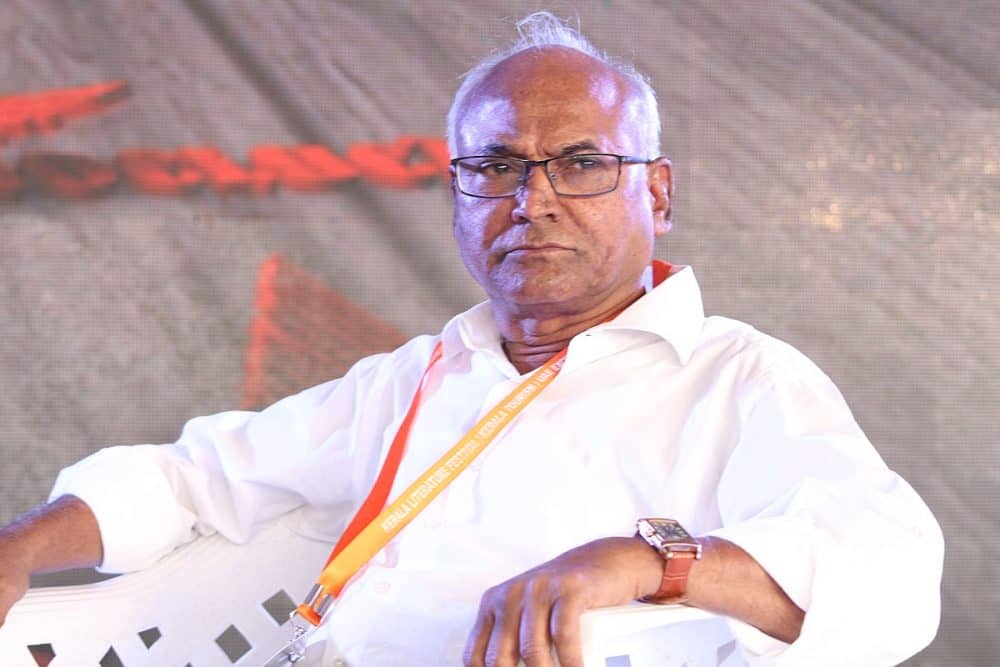New Delhi: Academician and activist Kancha Ilaiah Shepherd, whose books were recently slated for removal from the political science syllabus at Delhi University, has said that the current political regime does not want students to read him because he talks about caste equality and the government wants hierarchy to prevail.
“In my books, I talk about Gautam Buddha’s political thought, which is of equality. These people do not want OBCs and Dalits to become great thinkers, priests in Hindu temples, become ministers or attain positions of power. They will not let students learn about equality as it would go against the hierarchy,” Ilaiah, who belongs to the OBC category and has fought for Dalit rights, told media.
The Delhi University’s standing committee on academic matters recently suggested the removal of four books authored by Ilaiah — Why I am Not a Hindu, God as Political Philosopher: Buddha’s Challenge to Brahminism, Post-Hindu India: A Discourse in Dalit-Bahujan Socio-Spiritual and Scientific Revolution and Buffalo Nationalism — Critique of Spiritual Fascism.
All these books speak of the caste hierarchy and are critical of the role of upper caste Hindus, including Brahmins.
According to members of the standing committee, they felt the books were Ilaiah’s own understanding of the Hindu faith, and that he had no facts to prove them. Ilaiah, however, insisted that his books are a part of his PhD research work, for which he travelled to various villages in India to understand the issues.
The Department of Political Science later set aside the recommendations and decided to continue teaching the books. The final decision now rests with DU’s Academic Council, which is expected to take a decision soon.
Enlightening Shudras, Dalits & Adivasis
In Why I am Not a Hindu, Ilaiah traces Dalit history from the Indus Valley Civilisation and argues that Dalits and people from the modern-day ‘other backward classes’ helped in building the civilisation, not upper castes.
“In the Indus Valley Civilisation, there were no Vedas, no Brahmins — only Shudras. Brahmins came as Indo-Aryans later. By then we had built civilisation. Whatever we had written earlier, they must have destroyed, and after that, we were not allowed to write,” Ilaiah said.
“For the first time, I started recording history of Shudras from the villages. The history of Dalits who formed the leather industry, dhobis (washermen) and other castes like ironsmiths, pot-makers. In the book, I argue that Brahmins and Baniyas have not produced anything.
“These sadhus and sanyasis (saints) who are with the BJP have done nothing. They have never cared about cattle, never reared cattle, and now they are telling us why and which animal should be holy.
“My books are enlightening Shudras, Dalits and Adivasi students, this is the reason they are being opposed.”
Ilaiah also expressed concern about what is taught in Indian academics in general — following the western methodology of writing and teaching students only Kautilya, Manu, Plato and Aristotle when it comes to political thought.
“If you teach Manu’s political thought to students, they are never going to learn about equality; it’s all about caste hierarchy. Classrooms should be a space where all kinds of philosophy is taught to students,” Ilaiah said.

